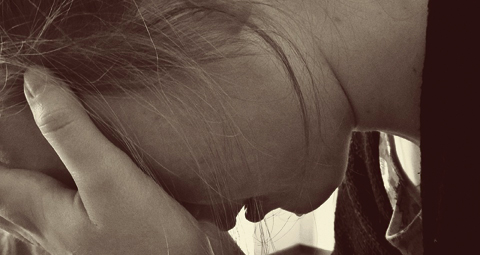February 26 | ![]() 0 COMMENTS
0 COMMENTS ![]() print
print

Tears are the answer to barrenness
Fr Ronald Rolheiser
Several years ago, while teaching a summer course at Seattle University, I had as one of my students, a woman who, while happily married, was unable to conceive a child. She had no illusions about what this meant for her. It bothered her a great deal. She found Mother’s Day very difficult. Among other things, she wrote a well-researched thesis on the concept of barrenness in scripture and developed a retreat on that same theme which she offered at various renewal centres.
Being a celibate, whose vows also conscript a certain biological barrenness, I went on one of her weekend retreats —the only male there. It was a powerful group experience, but it took most of the weekend for that to happen. Initially most everyone on the retreat was tentative and shy, not wanting to admit to themselves or others the kind of pain the loss of biological parenthood was creating in their lives. But things broke open on the Saturday night, after the group watched a video of a 1990s film, Secrets and Lies, a subtle but powerful drama about the pain of not having children. The tears in the movie catalysed tears within our group and the floodgates opened. Tears began to flow freely and one-by-one the women began to tell their stories. Then, after the tears and stories had stopped, the atmosphere changed, as if a fog had lifted and a weight had been removed. Lightness set in. Each person in the group had mourned her loss and now each felt a lightness in knowing that one might never have a child and still be a happy person, without denying the pain in that.
Barrenness is not just a term that describes a biological incapacity to have children or a life-choice to not have them. It’s wider. Barrenness describes the universal human condition in its incapacity to be generative in the way it would like and the vacuum and frustration that leaves inside lives. Karl Rahner summarises that in these words: “In the torment of the insufficiency of everything attainable we ultimately learn that here, in this life, all symphonies must remain unfinished.” No matter if we have biological children of our own or not, we still all find ourselves barren in that for none of us is there a finished symphony here on earth. There is always some barrenness left in our lives and biological barrenness is simply one analogate of that, though arguably the prime one. None of us die having given birth to all we wanted to in this world.
What do we do in the face of this? Is there an answer? Is there a response that can take us beyond simply gritting our teeth and stoically getting on with it? There is. The answer is tears. In mid-life and beyond, we need, as Alice Miller normatively suggests in her classic essay, The Drama of the Gifted Child, to mourn so that our very foundations are shaken. Many of our wounds are irreversible and many of our shortcomings are permanent. We will go to our deaths with this incompleteness. Our loss cannot be reversed. But it can be mourned, both what we lost and what we failed to achieve. In that mourning there is freedom.
I have always been struck by the powerful metaphor inside the story of Jephthah’s daughter in the Biblical story in the Book of Judges, chapter 11. It captures in an archetypal image the only answer there is, this side of eternity, to barrenness. Condemned to death in the prime of her youth by a foolish vow her father made, she tells her father that she is willing to die on the altar of sacrifice, but only on one condition. She will now die without experiencing either the consummation of marriage or the birthing of children. So she asks her father to give her two months before her death to ‘mourn her virginity.’ Properly mourned, an incomplete life can be both lived in peace and left in peace.
Tears are the answer to barrenness, to all loss and inadequacy. Marilyn Chandler McEntyre, in her book, A Faithful Farewell, has this to say about tears: “Tears release me into honest sorrow. They release me from the strenuous business of finding words. They release me into a childlike place where I need to be held and find comfort in embrace—in the arms of others and in the arms of God. Tears release me from the treadmill of anxious thoughts, and even from fear. They release me from the strain of holding them back. Tears are a consent to what is. They wash away, at least for a time, denial and resistance. They allow me to relinquish the self-deceptive notion that I’m in control. Tears dilute resentment and wash away the flotsam left by waves of anger.”
Not insignificantly, tears are salt water. Human life originated in the oceans. Tears (above) connect us to the source of all life on this earth, within which prodigal fecundity trumps all barrenness.
—Fr Ronald Rolheiser is a priest and member of the Missionary Oblates of Mary Immaculate. He is president of the Oblate School of Theology in San Antonio, Texas. Visit his website at www.ronrolheiser.com











